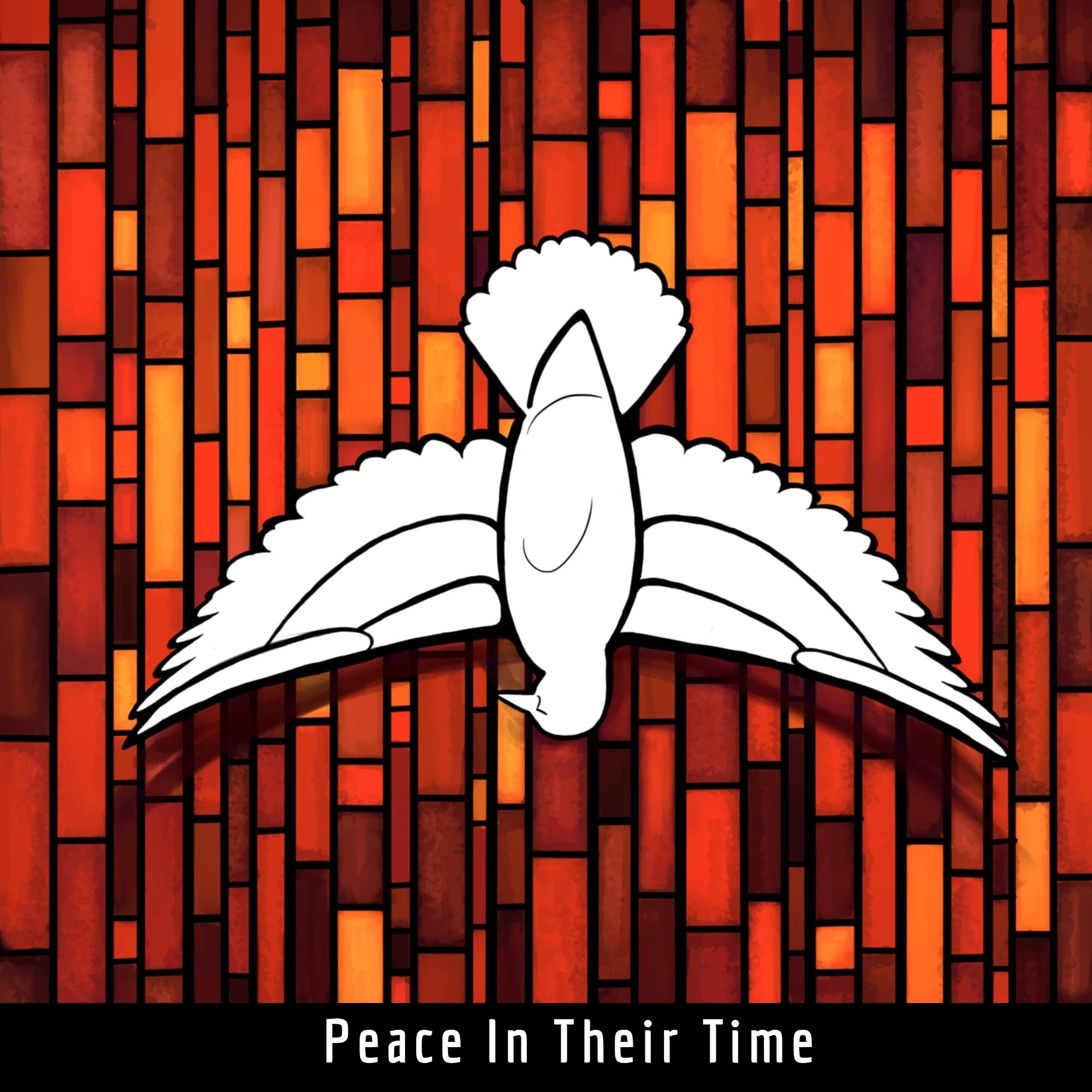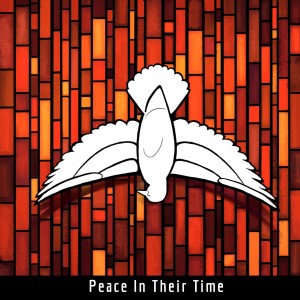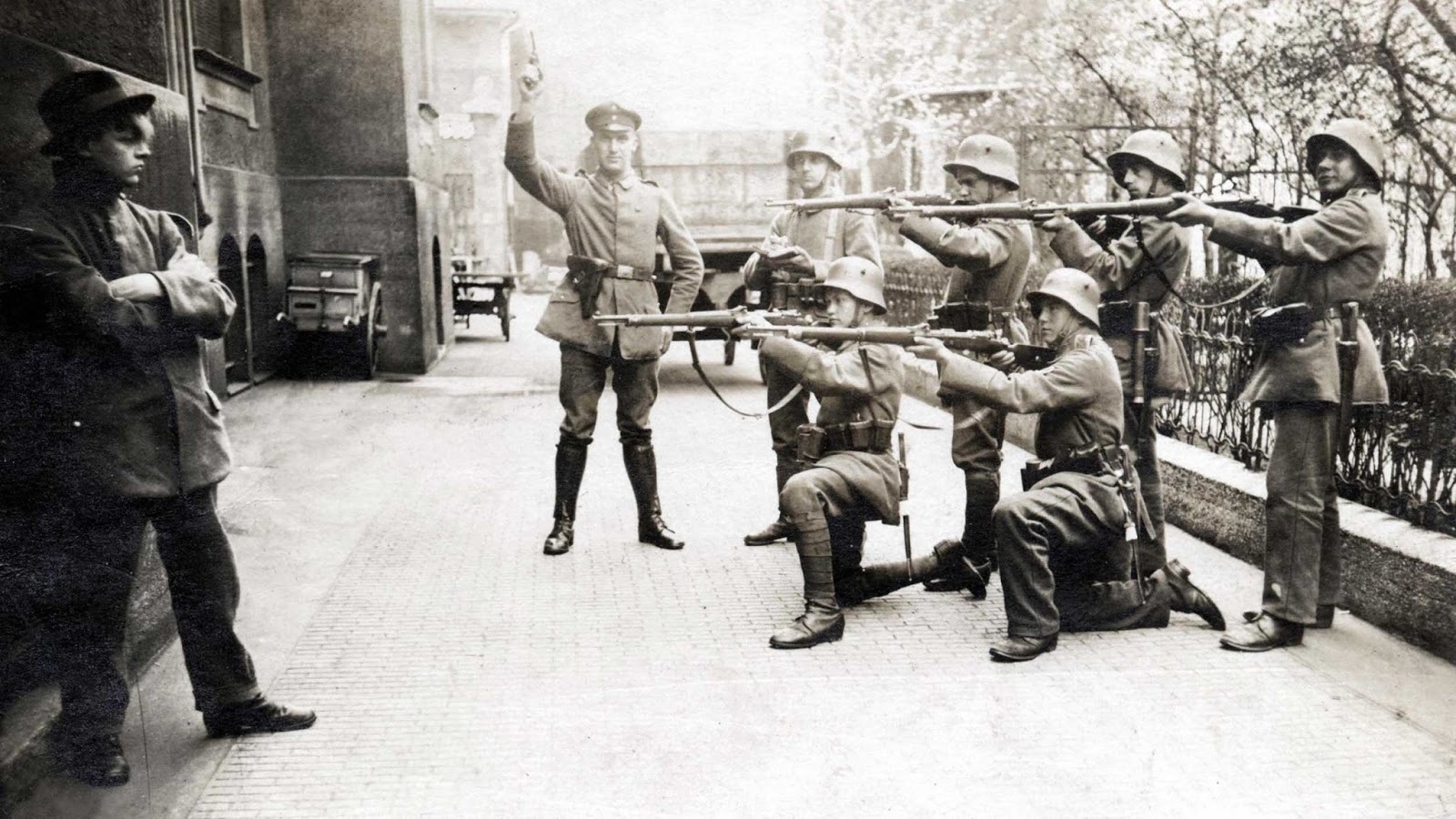
A history podcast dedicated to examining the global history of the 1920s and 30s in order to explain the causes of World War II, both large and small. As you might imagine, there’s a lot of ground to cover just to contextualize how the conflict got so out of control. If you love historical deep-dives and play-by-plays of nations in way over their collective heads, this is the show for you. Best niche history podcast out there! PROTIP: If you’re a new listener and are hopelessly confused by me bouncing from topic to topic, the scope of this show has kinda gotten away from me over the years. I have included an index of miniseries in the description of Episode 1 to provide a guide for what I’ve covered so far.
Episodes

Sunday Jan 07, 2024
Episode 157 - The Long March, Part I
Sunday Jan 07, 2024
Sunday Jan 07, 2024
By autumn 1934 it was clear that the Communists could not stay in southeast China. The solution was to step out for a walk, a long one.
Bibliography for this episode:
- Short, Philip Mao, A Life Henry Holdt and Company LLC 1999
- Wilson, Dick The Long March 1935: The Epic of Chinese Communism's Survival The Viking Press 1971
- Chung-gi, Kwei The Kuomintang-Communist Struggle in China 1922-1949 Martinus Nihoff 1970
- Yang, Benjamin From Revolution to Politics: Chinese Communists on the Long March Routledge 2021
- Po-cheng, Liu Recalling the Long March Foreign Language Press Peking 1978
- Salisbury, Harrison E. The Long March: The Untold Story Macmillan 1985
- Lai, Benjamin The Long March 1934-35: The Rise of Mao and the Beginning of Modern China Osprey 2019
Questions? Comments? Email me at peaceintheirtime@gmail.com

Sunday Dec 31, 2023
Episode 156 - Marching to the Long March
Sunday Dec 31, 2023
Sunday Dec 31, 2023
Switching gears in China, today I switch to covering Mao and the CPC's misadventures in southern China. The stretch of time between the end of the 20s and the start of the Long March were filled with false starts and missed opportunities as competing interests among the Communists squandered the victories over Chiang Kai-shek's encirclement campaigns.
Bibliography for this episode:
- Short, Philip Mao, A Life Henry Holdt and Company LLC 1999
- Fairbannk, John K & Albert Feuerwerker The Cambridge History of China, Volume 13: Republican China 1912-1949, Part 2 Cambridge University Press 1983
- Wilson, Dick The Long March 1935: The Epic of Chinese Communism's Survival The Viking Press 1971
- Chung-gi, Kwei The Kuomintang-Communist Struggle in China 1922-1949 Martinus Nihoff 1970
Questions? Comments? Email me at peaceintheirtime@gmail.com

Sunday Dec 24, 2023
Episode 155 - Chiang Gets Kidnapped
Sunday Dec 24, 2023
Sunday Dec 24, 2023
OK, so there's a lot more to this episode than the Xi'an Incident, but it's the most dramatic. Other than that, we've got secret societies, half-baked ideologies, and the false impression that things could get better in KMT China.
Bibliography for this episode:
- Fairbank, John K & Denis Twitchett The Cambridge History of China, Volume 12: Republican China 1912-1949, Part 1 Cambridge University Press 1983
- Fairbannk, John K & Albert Feuerwerker The Cambridge History of China, Volume 13: Republican China 1912-1949, Part 2 Cambridge University Press 1983
- Sheridan, James E. China in Disintegration: The Republican Era in Chinese History 1912-1949 Macmillian Publishing Co, Inc 1975
- Taylor, Jay The Generalissimo: Chiang Kai-shek and the Struggle for Modern China Harvard University Press 2011
- Wakeman Jr, Frederick Spymaster: Dai Li and the Chinese Secret Service University of California Press 2003
Questions? Comments? Email me at peaceintheirtime@gmail.com

Sunday Dec 17, 2023
Episode 154 - Best Laid Plans
Sunday Dec 17, 2023
Sunday Dec 17, 2023
With the Japanese outright occupying Chinese territory, Chiang Kai-shek had to move fast. A war was guaranteed, but preparations still needed to be made and domestic enemies still needed to be taken care of.
Bibliography for this episode:
- Fairbank, John K & Denis Twitchett The Cambridge History of China, Volume 12: Republican China 1912-1949, Part 1 Cambridge University Press 1983
- Fairbannk, John K & Albert Feuerwerker The Cambridge History of China, Volume 13: Republican China 1912-1949, Part 2 Cambridge University Press 1983
- Sheridan, James E. China in Disintegration: The Republican Era in Chinese History 1912-1949 Macmillian Publishing Co, Inc 1975
- Taylor, Jay The Generalissimo: Chiang Kai-shek and the Struggle for Modern China Harvard University Press 2011
- Van de Ven, Hans J. War and Nationalism in China, 1925-1945 Routledge 2003
- Qidong, Zheng A Brief History of Inflation in China Paths International Ltd 2013
Questions? Comments? Email me at peaceintheirtime@gmail.com

Sunday Dec 10, 2023
Episode 153 - Manchurian Goodbye
Sunday Dec 10, 2023
Sunday Dec 10, 2023
Today the focus shifts back to the misadventures of Chiang Kai-shek and the Nanjing government. The Central Plains War had been won, and it looked for the briefest of moments that things were going to be fine for them. Then the new campaigns against the Communists fell into disarray, and in September 1931 the Japanese invaded Manchuria. For Chiang, there would be no breaks. Ever.
Bibliography for this episode:
- Fairbank, John K & Denis Twitchett The Cambridge History of China, Volume 12: Republican China 1912-1949, Part 1 Cambridge University Press 1983
- Fairbannk, John K & Albert Feuerwerker The Cambridge History of China, Volume 13: Republican China 1912-1949, Part 2 Cambridge University Press 1983
- Sheridan, James E. China in Disintegration: The Republican Era in Chinese History 1912-1949 Macmillian Publishing Co, Inc 1975
- Taylor, Jay The Generalissimo: Chiang Kai-shek and the Struggle for Modern China Harvard University Press 2011
- Van de Ven, Hans J. War and Nationalism in China, 1925-1945 Routledge 2003
Questions? Comments? Email me at peaceintheirtime@gmail.com

Sunday Dec 03, 2023
Episode 152 - Let Sleeping Bears Lie
Sunday Dec 03, 2023
Sunday Dec 03, 2023
A fun and not very well-known little border war was the Sino-Soviet conflict of 1929. Basically the Soviets controlled the railways of northern Manchuria, and the Chinese wanted them out. Simple idea, difficult to execute in practice, and the way it was handled opened the door for the Red Army to humiliate the warlord forces of Manchuria. Which would in turn get other parties thinking about how easy it would be to go on an adventure of their own in the region.
Bibliography for this episode:
- Walker, Michael M. The 1929 Sino-Soviet War: The War Nobody Knew University Press of Kansas 2017
- Kotkin, Stephen Stalin: Waiting for Hitler 1929-1941 Penguin Press 2017
Questions? Comments? Email me at peaceintheirtime@gmail.com

Sunday Nov 26, 2023
Episode 151 - The Central Plains War
Sunday Nov 26, 2023
Sunday Nov 26, 2023
We get the real-deal history underway with some very familiar material: a warlord showdown. Except this would be bigger than ever, and would decide if Chiang Kai-shek's centralizing policies even had a prayer.
Bibliography for this episode:
- Fairbank, John K & Denis Twitchett The Cambridge History of China, Volume 12: Republican China 1912-1949, Part 1 Cambridge University Press 1983
- Fairbannk, John K & Albert Feuerwerker The Cambridge History of China, Volume 13: Republican China 1912-1949, Part 2 Cambridge University Press 1983
- Sheridan, James E. China in Disintegration: The Republican Era in Chinese History 1912-1949 Macmillian Publishing Co, Inc 1975
- Taylor, Jay The Generalissimo: Chiang Kai-shek and the Struggle for Modern China Harvard University Press 2011
- Van de Ven, Hans J. War and Nationalism in China, 1925-1945 Routledge 2003
Questions? Comments? Email me at peaceintheirtime@gmail.com

Sunday Nov 19, 2023
Episode 150 - Enter the Nanjing Decade
Sunday Nov 19, 2023
Sunday Nov 19, 2023
Last season I left off my China coverage with the successful conclusion of the Northern Expedition. But just because that long campaign was successful didn't mean that Chiang Kai-shek and the KMT had everything go their way. To kick off this new mini-series I'll be spending some time re-introducing some older friends, as well as newer groups and factions that were going to play a larger role in the years to come.
Bibliography for this episode:
- Fairbank, John K & Denis Twitchett The Cambridge History of China, Volume 12: Republican China 1912-1949, Part 1 Cambridge University Press 1983
- Fairbannk, John K & Albert Feuerwerker The Cambridge History of China, Volume 13: Republican China 1912-1949, Part 2 Cambridge University Press 1983
- Sheridan, James E. China in Disintegration: The Republican Era in Chinese History 1912-1949 Macmillian Publishing Co, Inc 1975
- Taylor, Jay The Generalissimo: Chiang Kai-shek and the Struggle for Modern China Harvard University Press 2011
- Van de Ven, Hans J. War and Nationalism in China, 1925-1945 Routledge 2003
Questions? Comments? Email me at peaceintheirtime@gmail.com

Sunday Nov 12, 2023
Episode 149 - Restoration
Sunday Nov 12, 2023
Sunday Nov 12, 2023
When events in China cooled off, the ones back in Japan heated up. With the exit of Japan from the League of Nations in 1933, the unilateralist approach was chosen to secure the empire. But even then, there was disagreement on approach that would create conflict on the home islands that were only starting to get resolved by the time formal war with China broke out in 1937.
Bibliography for this episode:
- McClain, James L A Modern History of Japan WW Norton & Company Inc, 2002
- Duus, Peter The Cambridge History of Japan, Volume 6: The Twentieth Century Cambridge University Press 1988
- Young, Louise Japan's Total Empire: Manchuria and the Culture of Wartime Imperialism University of California Press 1998
Questions? Comments? Email me at peaceintheirtime@gmail.com

Sunday Nov 05, 2023
Episode 148 - Jewel of the Empire
Sunday Nov 05, 2023
Sunday Nov 05, 2023
Today we wrap up our close-in look at the puppet state of Manchukuo and cover what drove the state and kept it a function part of the Japanese Empire. The short answer is money, but there were also fitful attempts at building an identity mixed in there too. Not terribly successful ones, but enough that there was a veneer of legitimacy covering up the abject servitude.
Bibliography for this episode:
- McClain, James L A Modern History of Japan WW Norton & Company Inc, 2002
- Duus, Peter The Cambridge History of Japan, Volume 6: The Twentieth Century Cambridge University Press 1988
- Young, Louise Japan's Total Empire: Manchuria and the Culture of Wartime Imperialism University of California Press 1998
- Jowett, Philip S. Rays of the Rising Sun: Armed Forces of Japan's Asian Allies 1931-45 Helion & Company Limited 2004
- Duara, Prasenjit Sovereignty and Authenticity: Manchukup and the East Asian Modern Rowan & Littlefield Publishers, Inc 2003
- Matsusaka, Yoshihisa Tak The Making of Japanese Manchuria, 1904-32 Harvard University Asia Center 2001
- Mitter, Rana The Manchurian Myth: Nationalism, Resistance, and Collaboration in Modern China University of California Press 2000
- Paine, S.C.M. The Japanese Empire: Grand Strategy from the Meiji Restoration to the Pacific War Cambridge University Press 2017
- Paine, S.C.M. The Wars for Asia, 1911-1949 Cambridge University Press 2012
Questions? Comments? Email me at peaceintheirtime@gmail.com
